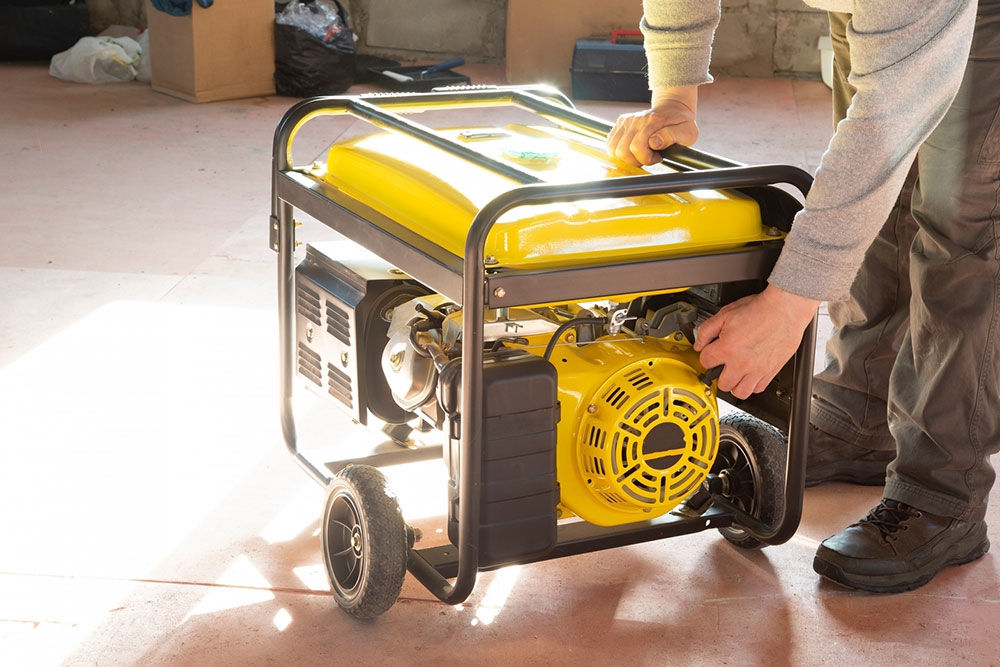Emergency Generators for Seniors – Tips, Features, and More
An emergency generator can help people, especially seniors, avoid trouble when the electricity goes out due to a malfunction or bad weather. While one can do without the television or air conditioner, the shutdown of certain appliances can create problems. For example, one’s health is at risk if they can’t use an electrical medical device, or the basement can flood if the sump pump stops. Having an emergency generator is vital to avoiding that.

Tips to choose and factors to consider
1. Know the reason for buying one
This is the first step to buying an emergency generator. It is important to know what the generator will be used for, as buying a generator to power a household during an outage is completely different from picking one for camping or taking on an RV trip. The reason for buying the generator will not only determine its size but also its price. For example, a standby generator is made for a household or business and is larger and more expensive. Meanwhile, portable generators can be taken everywhere, are versatile, and cost less than standby ones.
2. Consider the size of the generator
To know what size of emergency generator to pick, one must list all the appliances that need to be powered during electricity blackouts or on a trip. Then, individuals can check the wattages of each appliance and add those up to get a total number. Once this number has been obtained, buyers could shortlist generators that produce power equal to the total wattage of those appliances. These are the ones that are of the right size. It is best to refrain from buying models that generate less or more power. These will be rendered useless when an emergency crops up due to a power failure.
3. Learn about the types of generators
Before investing in an emergency generator, knowing the different types available is useful. By learning about the different features of each, determining which type would be most suitable for one’s requirements can be easier. Most retailers also stock up the top unsold emergency generators for seniors, which one can consider.
- Portable generator
These generators can be easily ferried around since there are wheels attached to most models. Smaller models are usually handheld, so electricity can be delivered anywhere using these. Mobile generators often run on gasoline and are affordable. Seniors who like camping or going on RV trips prefer carrying these types of emergency generators with them. - Inverter generator
Similar to portable generators, inverter generators are smaller and easier to carry. They are also relatively lighter than most standard portable generators and work more quietly. For these reasons, seniors also prefer inverter generators for camping and other activities. Some even have an onboard inverter, which makes the generator useful for supplying power to a small household. But, one downside is that they are on the pricier side when compared to portable generators. - Standby generator
For those looking for a more permanent emergency generator solution, standby generators are a reliable choice. These generators are quite large and expensive. They are permanently installed in a household and can switch on automatically whenever a power outage occurs. Typically powered by propane or natural gas, these generators are safer than portable or inverter ones. - Solar generator
These consist of portable batteries that have to be charged using portable solar panels.
4. Determine the budget
Larger home generators that can produce about 20 kilowatts of power usually cost between $10,000 and $15,000. These prices include the cost of installation and connection to gas lines. Meanwhile, portable generators generally cost around $1,500 to $3,000, depending on their size.
Seniors must be willing to shell out more for environmentally sustainable options, such as solar generators. This is because these generators have a higher price tag, ranging from $15,000 to $60,000. This cost includes the complete system with solar panels to run all the major appliances at home and charge the batteries in case of an extended power outage. Lightweight portable solar generators that power only a few small devices cost around a few hundred to a few thousand dollars.
To save further, one can ask the retailer if they have special emergency generator price lists for seniors. These might include discounts, deals, or rebates, especially for seniors.
Features to consider
Emergency generators come with a whole host of features. Some are useful, while others are simple add-ons that can increase the cost of the generator. It does not make sense to put in more money if these extra features are not used. This is why seniors should make sure to look at all the features so that they don’t shell out more than the decided budget. Automatic CO shutoff, electric start, automatic start, fuel gauge, multiple outlets, and low-oil shutoff are a few features that seniors can look into to determine whether they are needed.


